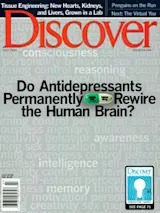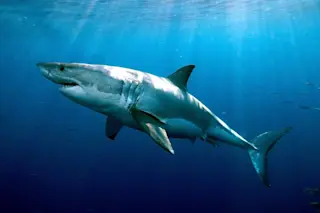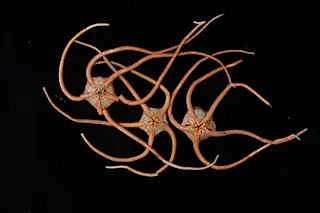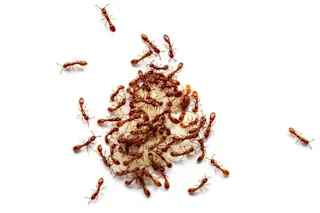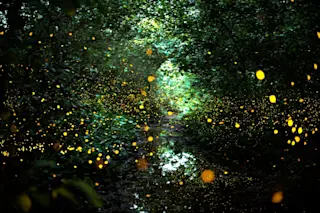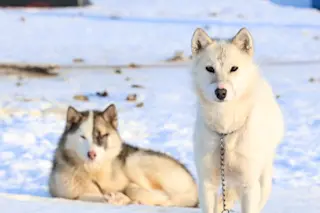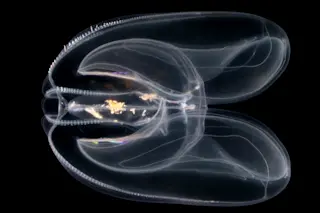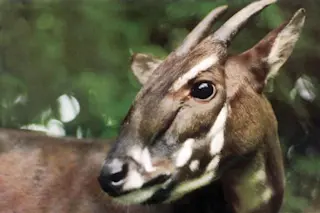At microscopic scales, the world is all in knots. Ubiquitous polymers and biological molecules, including DNA and proteins, have long, strandlike forms that inevitably get caught up in a tangle but then somehow untie themselves. This spontaneous tying and untying— which influences the chemistry of proteins, the replication of DNA, and the mechanical properties of plastics— cannot be observed directly. But physicist Eli Ben-Naim of Los Alamos National Laboratory found a way to study the process using simple pieces of metal-bead chain like the ones used to secure pens at bank counters.
Ben-Naim, along with colleagues Robert Ecke and Zahir Daya, bought spools of chain from a local hardware store, cut them into segments 30 to 300 beads long, and tied them into pretzellike knots. Then they set the knots on a plate that vibrates 13 times a second, simulating the random jostling of molecules, and watched to see what happened. The chains wriggled around, settling into many semistable configurations until one end of the chain slipped through and untied the knot. On average, a 30-bead chain took a second to break free and 150 beads about a minute, but the knots always came undone.

Photo by Z. Daya, E. Naim, and R. Ecke/Los Alamos National Laboratory.
The pattern of unraveling depended only on the type of knot, not on the length. "A hundred beads or a million beads will have the same statistics," Ben-Naim says. Understanding the configurations of tangled biomolecules could shed light on the protein folds that influence everything from digestion to infection. Ben-Naim adds that the experiment was also quite lovely: "The chain bounced like a dancing worm, so if you look at it half a second later it is completely different, and that has its own beauty."


